Magpies are sociable birds, and sometimes, their sociability brings them to our backyards. In many cases, people encourage these visits by feeding the birds human foods. Unfortunately, this act of kindness is not recommended.
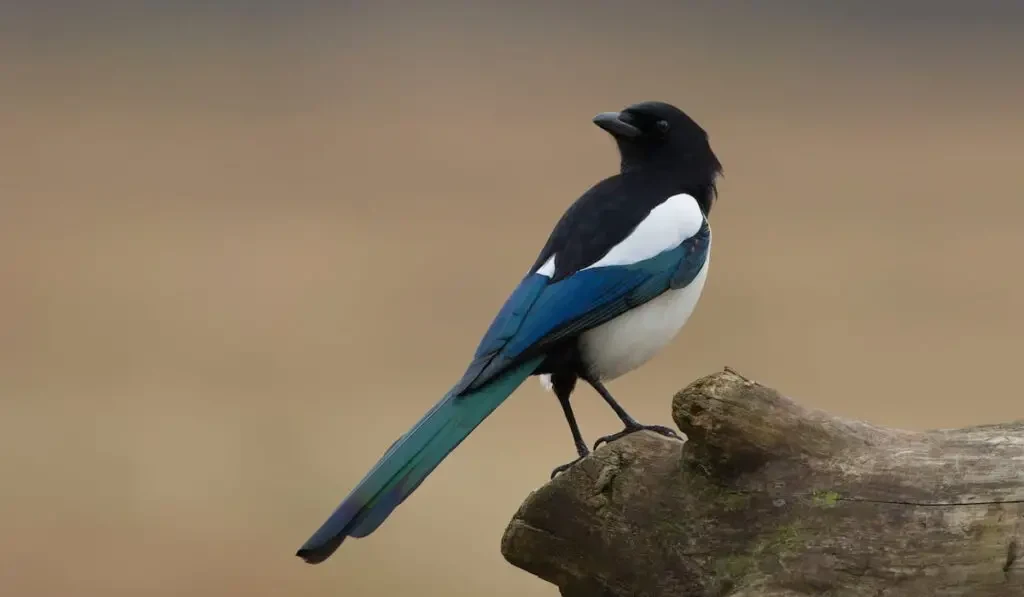
While it is not necessarily wrong to feed human foods to magpies, some of the foods we eat are harmful to a magpie’s diet. Therefore, one should only give them human food cautiously or avoid giving them any at all.
Nonetheless, if you do choose to feed magpies, below are some foods they cannot eat.
Table of Contents
Alcohol
Ordinarily, no one should think of letting a magpie drink alcohol. But it does happen; some people actually let birds have a go at alcohol.
Unfortunately, just like excessive alcohol ingestion can harm humans, it can harm magpies.
Since magpies are smaller than humans, even the tiniest amounts of alcohol are harmful to them.
Alcohol will depress various organ systems of a magpie, and this can be deadly.
Therefore, never let any bird consume alcohol.
Apple Seeds
Apple fruit is safe for magpies, but apple seeds should never be fed to them.
Apple seeds contain trace amounts of cyanide. Therefore, if magpies consume them in sufficient amounts, the magpies may suffer cyanide poisoning.
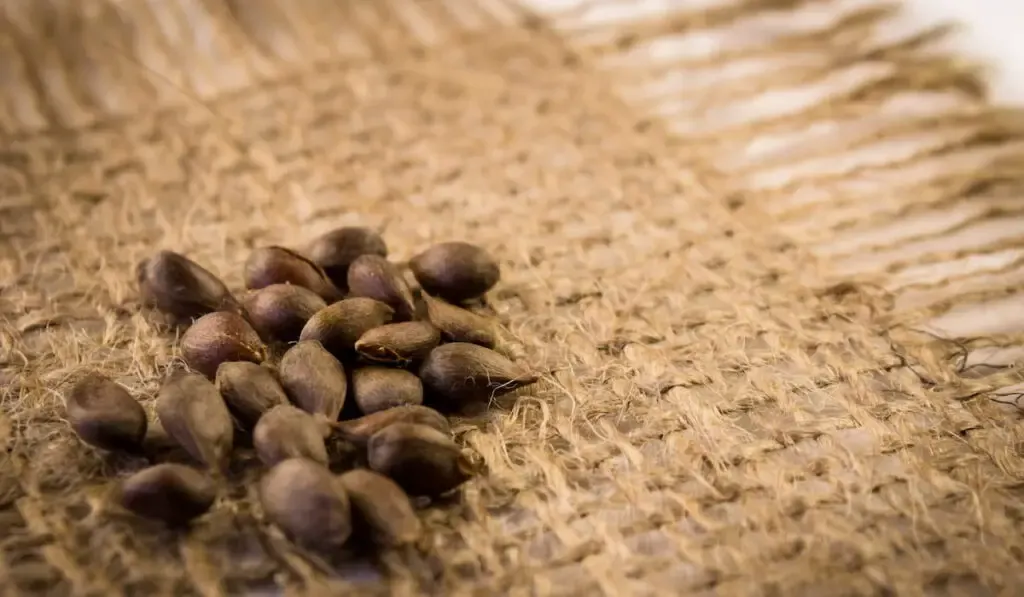
Cyanide poisoning is potentially fatal, so you should not even take chances by feeding apple seeds to magpies.
Apricot Seeds
Like apple seeds, apricot seeds contain trace levels of cyanide.
Given in sufficient quantity, they may lead to cyanide poisoning. Therefore, apricot seeds should be avoided when feeding magpies.
Avocado
Avocado is one food item you should avoid giving to any animal, including magpies.
Generally, the skin, leaves, and pit of avocados are toxic to birds, as they can cause heart issues, respiratory problems, and sudden death.
One of the substances said to be responsible for these responses to avocado consumption is persin.
You should avoid giving avocado and avocado-derived food like guacamole to magpies. Nothing good will come out of doing so.
Bread
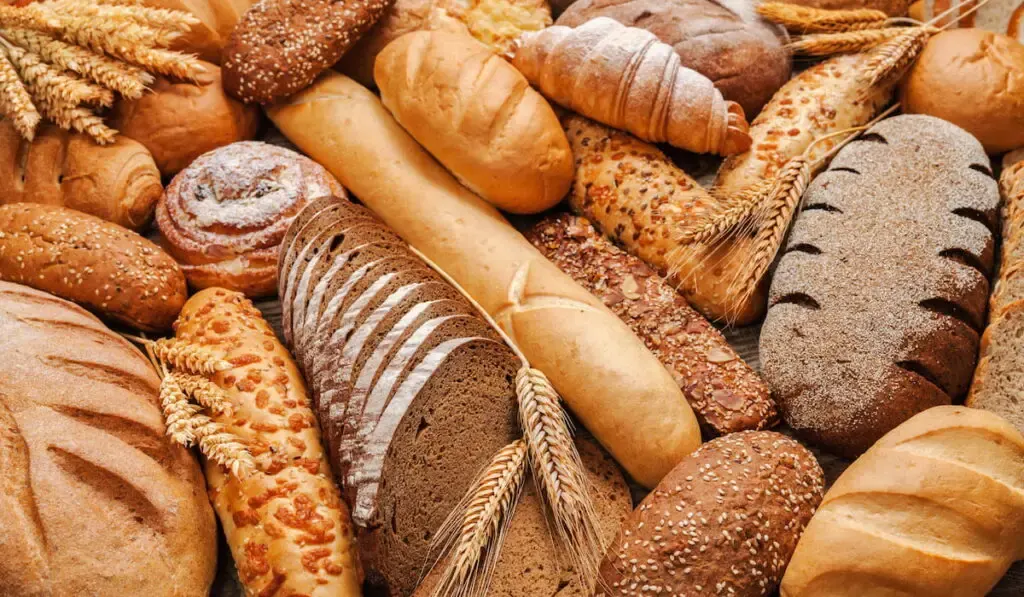
Bread offers little or no nutritional benefit to magpies. So, feeding bread to them will only lead to nutritional imbalance.
Also, the quantity of sugar in bread is unfit for magpies. Therefore, if they consume it, they may suffer from digestive issues.
Baked Food Items
As with bread, baked items like cake, cookies, and brownies are off-limit for magpies. Their sugar content is bound to upset the digestive system of a magpie.
In addition, they offer no real nutritional benefit to the birds.
Caffeinated Drinks
Caffeinated drinks such as coffee, tea, energy drinks, and soda should not be given to magpies.
The consumption of caffeine in magpies, and birds in general, is associated with cardiac malfunction.
In other words, if you offer a caffeinated drink to a magpie, its heart rhythm may become abnormal. Consequently, it may suffer a cardiac arrest.
In place of caffeinated drinks, you may offer magpies drinks/smoothies that contain only fruits or vegetables. Still, be wary of the type of fruit contained in such a beverage. Remember that fruits such as avocado are off-limits for magpies.
Cassava
Like apple seeds and apricot seeds, various parts of a cassava plant contains some level of cyanide. When such cassava parts are consumed in sufficient quantities by magpies, they may suffer from cyanide poisoning.
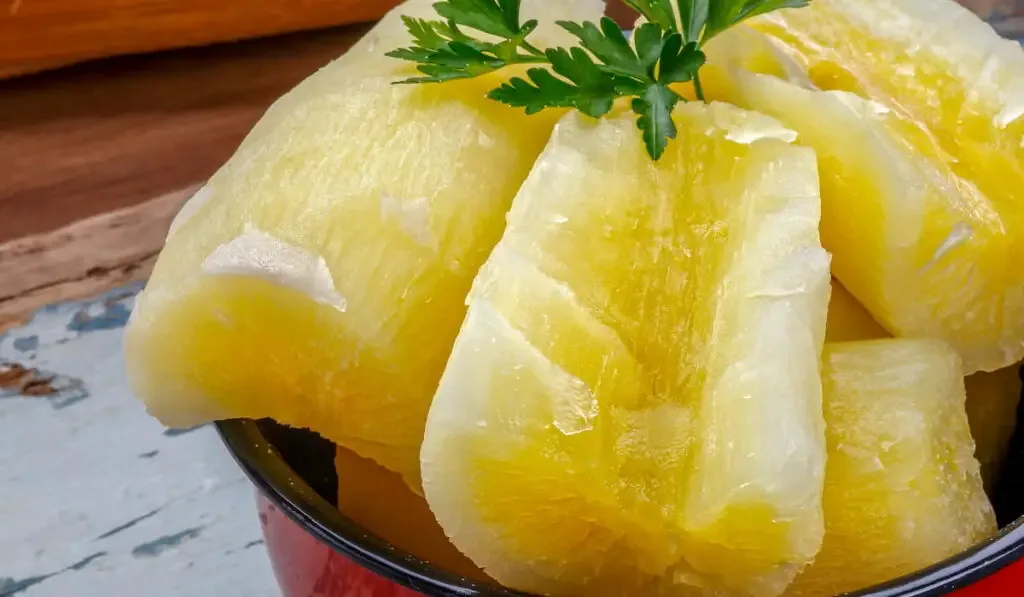
Processed cassava may contain less cyanide than raw cassava. Still, it is better to be safe than sorry and not offer it at all.
Cheese
While cheese may not harm magpies, it is not part of their usual diet.
So, giving them a cheese treat will be of no benefit to them. In some cases, cheese may trigger diarrhea in magpies due to its lactose content.
Chocolate
Like caffeinated beverages, chocolate contains caffeine. Therefore, if magpies consume chocolate, it may increase their heart rate, alter their heart rhythms, or even cause a cardiac arrest.
Besides containing caffeine, chocolate contains theobromine, another substance that is potentially harmful to magpies.
Like caffeine, theobromine can affect the heart rhythm and heart rate of birds. The early symptoms of theobromine poisoning are vomiting, nausea, and diarrhea.
Dried Beans
Feeding cooked beans to magpies is generally harmless. But with dried or uncooked beans, the story is different.
Dried or uncooked beans contain a toxin called hemagglutinin. When consumed, this substance causes red blood cells to clump up. Hemagglutinin also disrupts cellular metabolism.
Therefore, when magpies consume beans in dried or uncooked form, they may experience serious adverse effects or even die.
Garlic
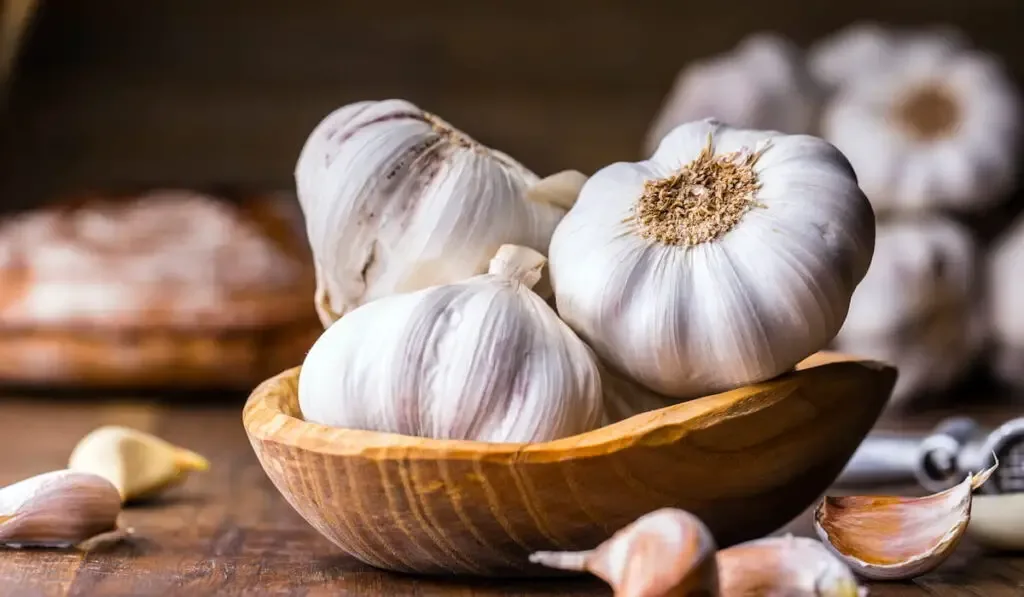
Garlic contains some sulfur compounds, which can cause irritation and ulceration of the gastrointestinal tract. When consumed by magpies, garlic can cause ulcers and red blood cell ruptures. Consequently, they may become anemic.
Milk
Like cheese, milk may not necessarily harm magpies.
However, since it is not part of their usual diet, it will offer no nutritional benefit. Also, milk contains more lactose than cheese. Therefore, it is more likely to trigger diarrhea in magpies.
Mushrooms
Whether raw or cooked, mushrooms are potentially harmful to magpies. For one, they are known to cause digestive issues in birds. The caps and stems of some mushroom species can also trigger liver failure.
Onions
Like garlic, onions contain sulfur compounds that can irritate the gastrointestinal lining of a magpie. And when this happens, ulcers may form. These ulcerations will cause pain and some blood loss.
Of course, these occurrences are not desirable, so feeding onions should be avoided.
Besides the ulcerations, the sulfur compounds can cause red blood cells to rupture. So, all in all, onions may trigger anemia in magpies.
Raw Meat
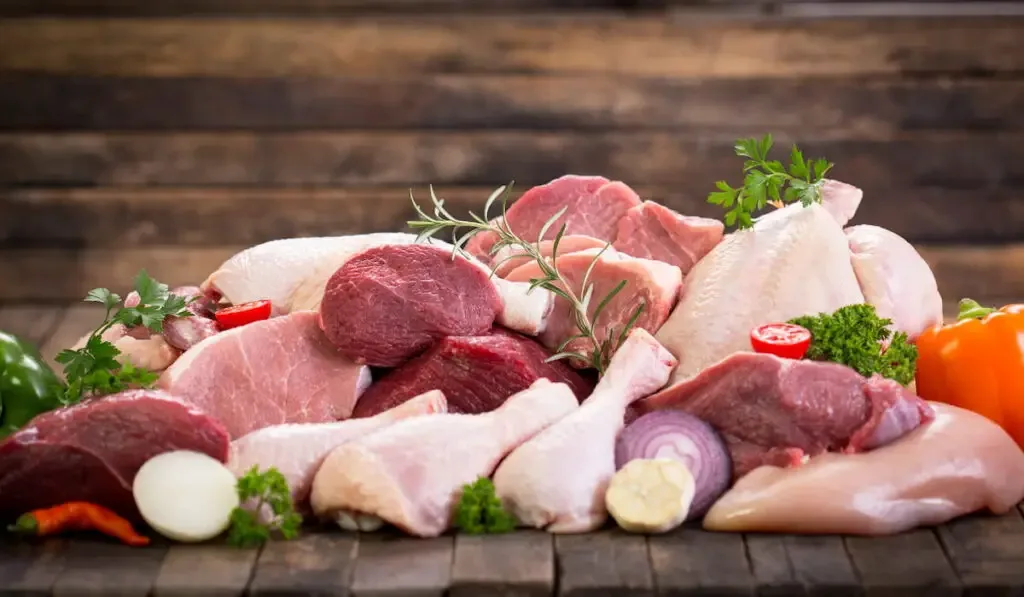
Raw meat leaves magpies at risk of infections such as toxoplasmosis. Toxoplasmosis is potentially fatal, and feeding raw meat to magpies is not worth the risk.
Besides the risk of infection, raw meat does not meet the calcium requirements of magpies. So, eventually, the birds will develop misshapen beaks and bones if consistently fed a diet of raw meat.
Processed Meat
Firstly, processed meat offers no nutritional benefit to magpies. Then again, the calcium content of processed meats like sausage falls below what magpies need.
Tomato Leaves
While ripe tomatoes are unharmful to magpies, the green parts of the plant are not.
In other words, tomato leaves, vines, stems, and unripe tomato fruits are harmful to magpies.
These parts of a tomato plant contain a toxin called solanine. When ingested, solanine may cause gastrointestinal upset: nausea, vomiting, diarrhea, and cramps. Beyond that, solanine may also cause abnormal heart rhythm, pain, and dizziness.
Xylitol
Xylitol is an artificial sweetener used in many sugarless foods.
It has been shown that xylitol can cause liver issues, hypoglycemia, and death in some animals.
However, its effects have not been confirmed in birds.
Nonetheless, since birds are generally faster metabolizers than many animals, xylitol may be even more toxic to them. So, to be safe, avoid giving anything containing xylitol to magpies and any other animal.
Resources
- https://www.thesprucepets.com/common-foods-that-can-poison-bird-390628
- https://www.healthywildlife.com.au/feeding-magpies/#/
- https://zupreem.com/avian/toxic-foods-your-bird-should-never-eat/
- https://www.thehappychickencoop.com/foods-poisonous-to-birds-is-there-such-a-thing/
- https://www.abc.net.au/news/2018-10-18/these-foods-could-be-hurting-your-backyard-magpies/10365712
- https://be.chewy.com/harmful-foods-for-birds/
